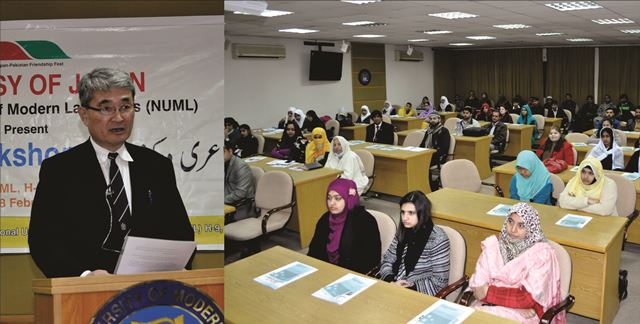EMBASSY OF JAPAN IN PAKISTAN
|
HAIKU EDUCATION WORKSHOP BEGINS AT NUML |
PRESS RELEASE N0: JPNEMPAK 16-06 Islamabad: 16th February 2016 |
The Embassy of Japan in collaboration with the Pakistan Haiku Society and National University of Modern Languages has organized a three-day Haiku Education Workshop from 16th to 18th February 2016 at the premises of National University of Modern Languages (NUML) Islamabad. The purpose of organizing Haiku Education Workshop is to teach the art of Haiku poetry writing in Urdu to the young students of Rawalpindi and Islamabad. Mr. Toshikazu Isomura, Counselor & Head of Public Affairs, Embassy of Japan, today inaugurated the workshop which will be concluded on 18th February, 2016. Prominent Pakistani Haiku poets Mr. Ali Yasir and Mr. Ali Muhammad Farshi will conduct the haiku training workshop. (END)
|
 |